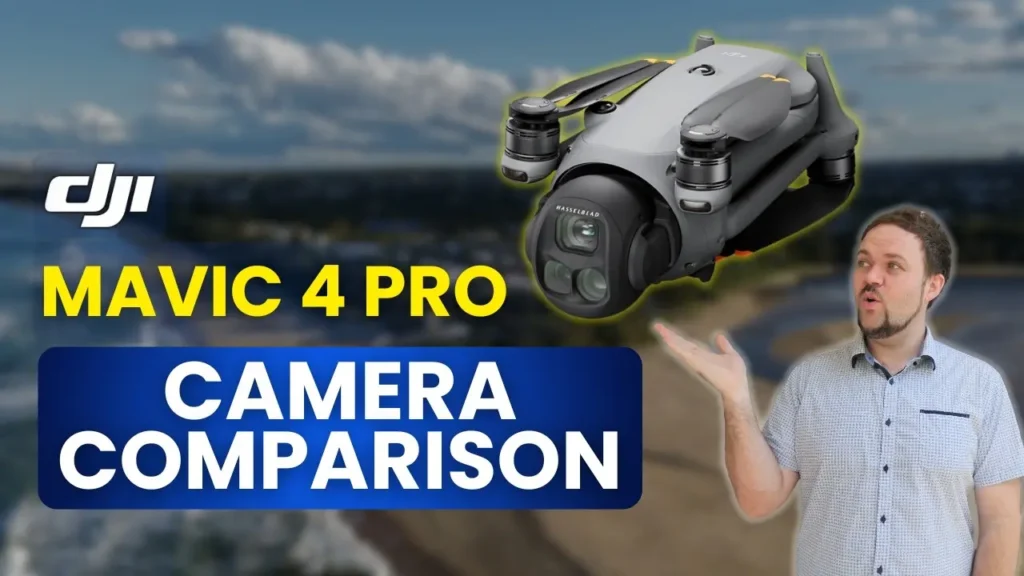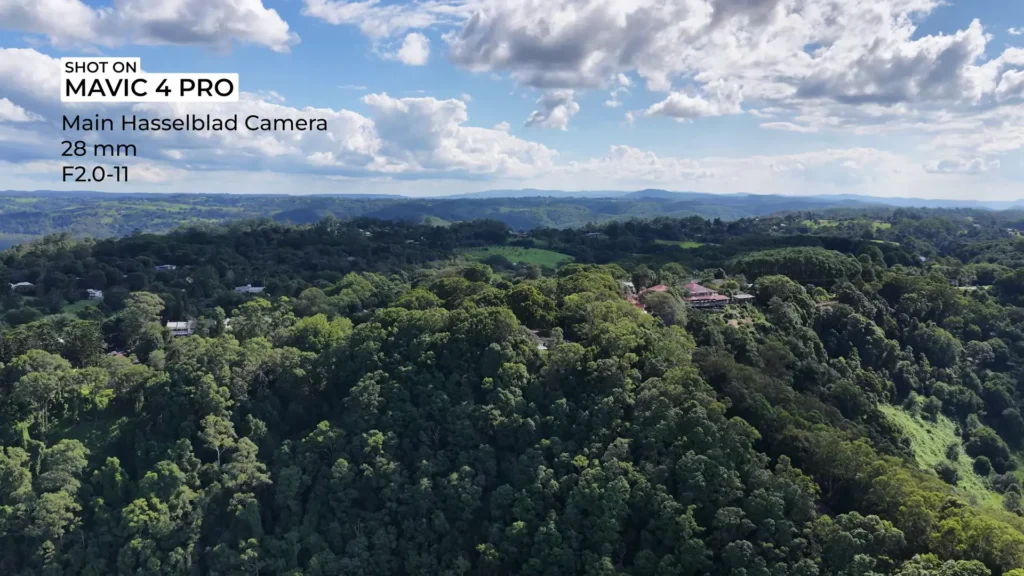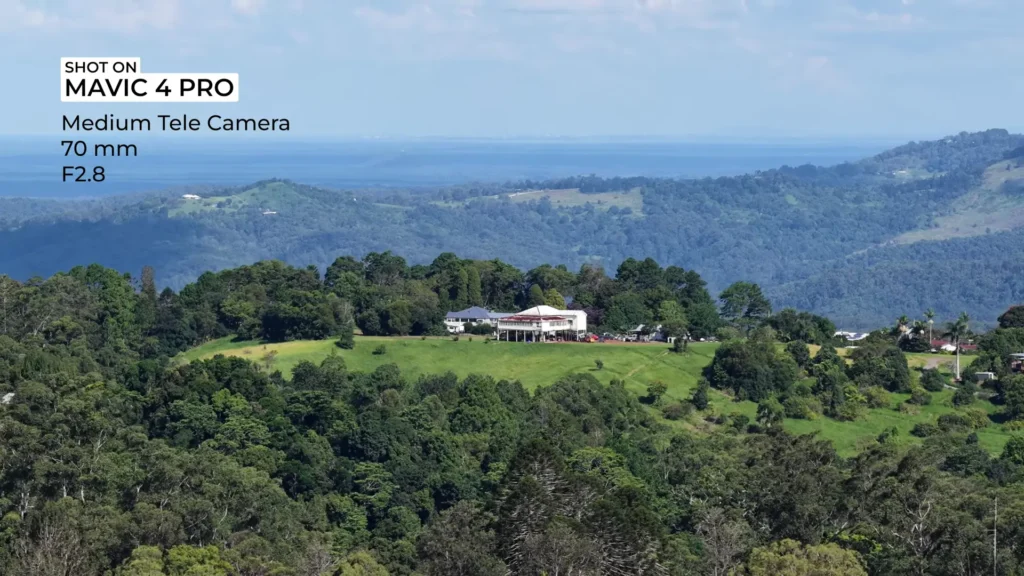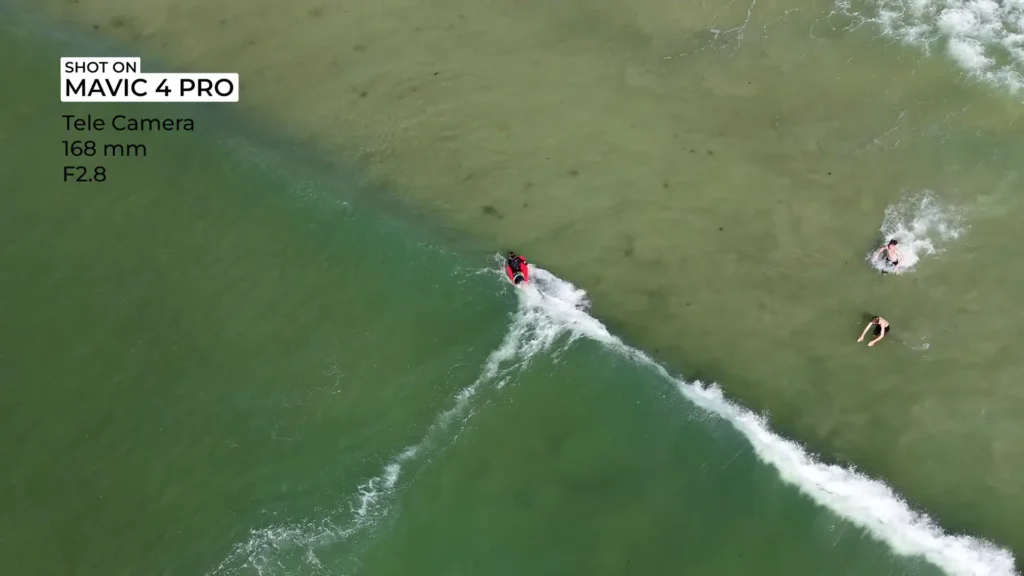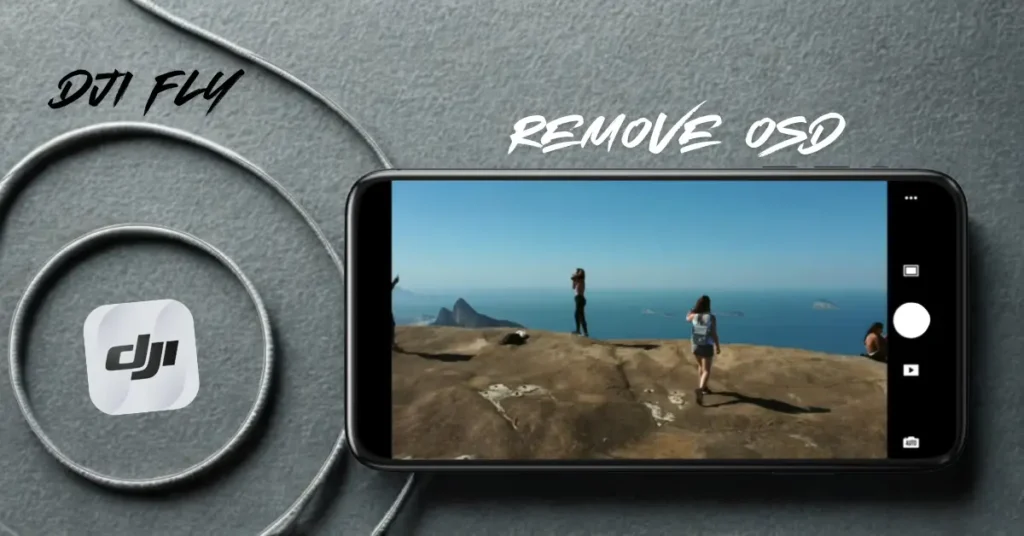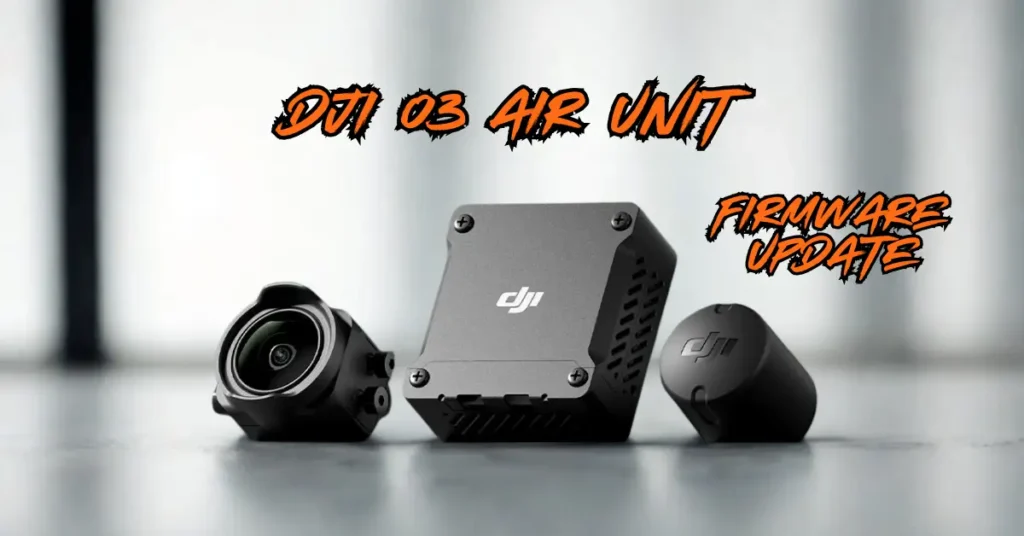You’ve been asking to see all three camera systems on the Mavic 4 Pro, and that’s exactly what this article is all about. I’m Dan Davis, the Creative Director here at DansTube.tv, and in this detailed breakdown, I’ll showcase the full capabilities of the Mavic 4 Pro’s tri-camera system. From the main Hasselblad camera to the medium and telephoto lenses, I’ll walk you through what each system can capture both in terms of video and photography and what you can expect in terms of performance and image quality.
Main Camera: Hasselblad Excellence
The Mavic 4 Pro boasts three camera systems, building on the innovations seen in the Mavic 3 Pro, but with substantial improvements. At the core is the main camera, a Hasselblad 4/3 CMOS sensor essentially a micro four-thirds system, akin to many professional mirrorless cameras. This camera now captures 6K video at 60 frames per second in HDR, a major leap from the 5.1K on the Mavic 3 Pro. Still images have also seen a drastic upgrade, now supporting 100-megapixel photos. The main camera also offers:
- 4K video at up to 120 fps in slow motion
- Adjustable aperture ranging from f/2.0 to f/11
- 10-bit 4:2:2 color with the All-I codec
- Internal storage of 512 GB in the Creator Combo
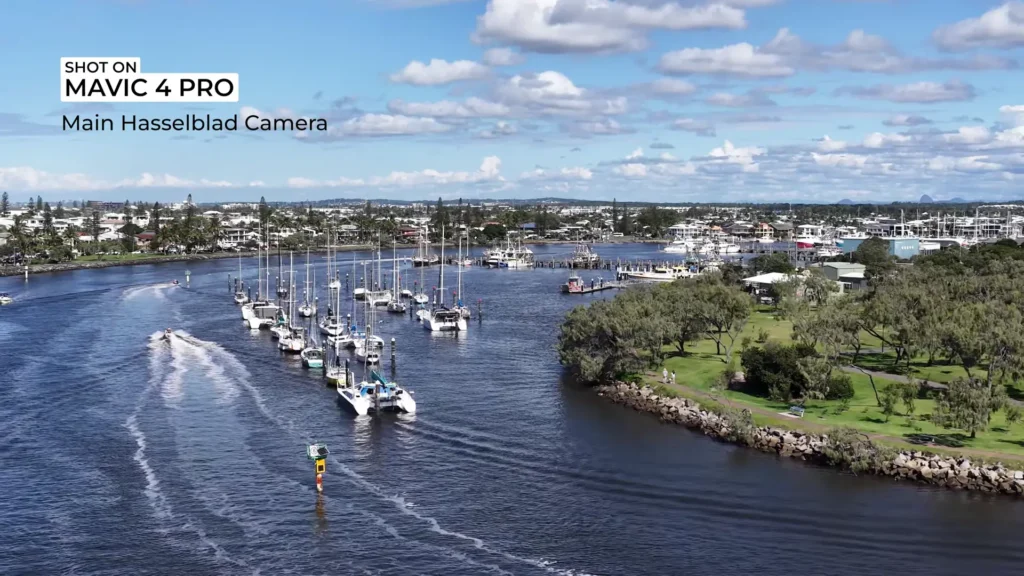
Although it doesn’t support Apple ProRes like the Cine version of the Mavic 3 Pro, the All-I codec still delivers stunning footage with high fidelity and color depth.
Medium Telephoto Camera: Versatile and Reliable
The medium telephoto system features a 1/1.3″ CMOS sensor, a reliable configuration that DJI has used in other drones like the Mini 4 Pro and Air 3S. This camera captures:
- 48 MP stills
- 4K 60 fps HDR video
- 4K 120 fps slow motion
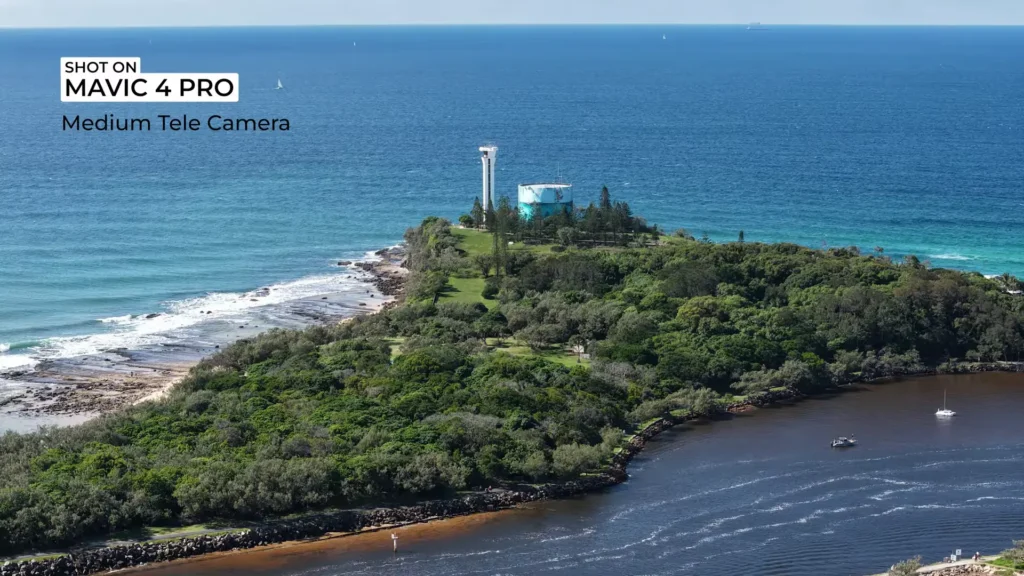
It’s a rock-solid performer, producing consistent results, and offers great compression thanks to the 70 mm equivalent lens with a fixed aperture of f/2.8.

Telephoto Camera: Zoom Powerhouse
For extreme zoom capabilities, the telephoto camera delivers serious reach:
- 1/1.5″ CMOS sensor
- 50 MP stills
- 4K 60 fps HDR video
- 4K 100 fps slow motion
- 168 mm equivalent lens with fixed f/2.8 aperture
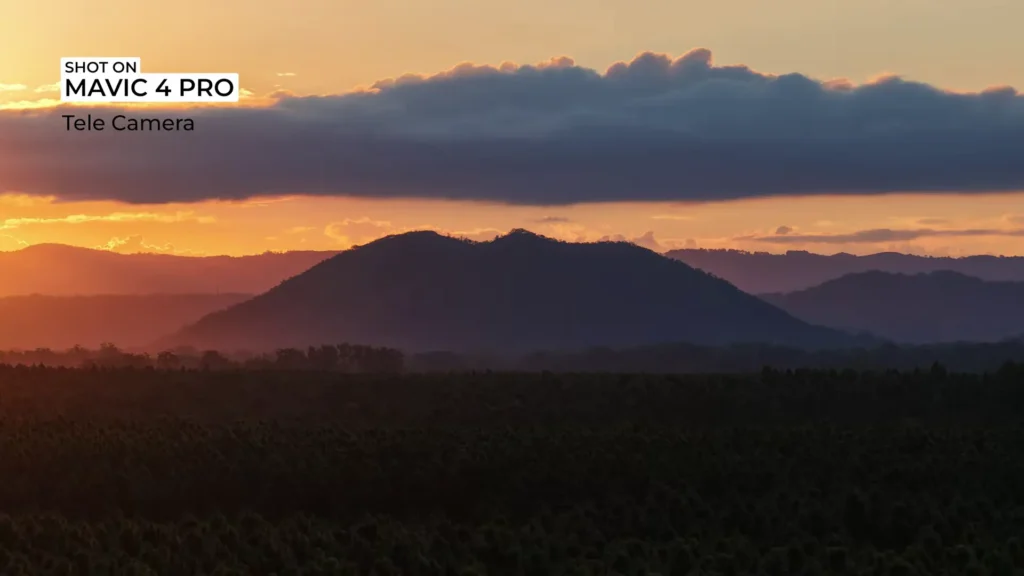
Compared to the Mavic 3 Pro, which only had 12 MP stills on its tele lens, this is a huge improvement in resolution and usability. Focus and clarity have both seen significant enhancements.
Seamless Integration and Color Science
All three cameras share a beautiful and unified color science, making it possible to seamlessly cut between footage captured on different lenses. While the Hasselblad system remains the flagship with its larger sensor and superior dynamic range the supporting cameras hold their own remarkably well.
Gimbal & True Vertical Shooting
The Mavic 4 Pro features DJI’s Infinity Gimbal, allowing:
- 400° manual rotation
- 360° automatic QuickShot rotation
- 70° upward tilt for unique perspective shots
- True vertical shooting via physical camera rotation
This is a first for recent Mavic drones enabling creators to capture genuine vertical content without cropping or digital reframing. Even the rotation works in both horizontal and vertical modes, offering full control over your shots.
Zoom Capabilities and Digital Range
The zoom interface includes:
- 1x (main Hasselblad)
- 2.5x (medium telephoto)
- 6x (telephoto)
On top of that, the digital zoom range expands up to 24x, providing incredible reach. Though image quality at extreme digital zoom levels may diminish, the clarity is still impressive thanks to the improved sensors and processing.
- Hasselblad: 1x to 2.5x
- Medium Tele: 2.5x to 6x
- Tele: 6x to 24x (digital)
Photo Performance
Each of the three cameras excels in still photography:
- Hasselblad: 100 MP
- Medium Tele: 48 MP
- Tele: 50 MP
Compared to the Mavic 3 Pro, which maxed out at 20 MP and 12 MP (telephoto), the improvements are undeniable. The dynamic range, clarity, and color pop in these stills, even in low-light situations or high-contrast scenes.

Vertical Video & Additional Features
You can now record 4K 60 fps vertical videos, a huge win for content creators targeting platforms like TikTok or Instagram Reels. And thanks to the manual and automated gimbal control, you can combine tilt and rotation for smooth, creative shots. Furthermore, all three camera systems support:
- 10-bit color
- HLG, DLOG-M, and DLOG profiles
- All-I codec across the board
This consistency across the lineup allows for a truly professional workflow, no matter which camera you’re using.
Lens Equivalents & Preferences
To summarize the lens formats:
- Main Hasselblad: 28 mm equivalent (adjustable aperture)
- Medium Telephoto: 70 mm equivalent (f/2.8 fixed)
- Telephoto: 168 mm equivalent (f/2.8 fixed)
While each camera has its strength, the medium telephoto emerged as a favorite due to its excellent balance of compression, clarity, and reliable color reproduction.
Table of Contents
Article Summary
In comparison to the Mavic 3 Pro, the Mavic 4 Pro represents a substantial leap forward. While some still prefer the Mavic 3 Pro Cine Edition due to Apple ProRes, the Mavic 4 Pro offers a compelling upgrade with 6K 60 fps HDR video, True vertical shooting, Improved slow motion options, Better zoom and focus performance, Full gimbal rotation and tilt range, Massive megapixel upgrades across all lenses. Focus tracking is now precise and intuitive. You can tap to prioritize a subject mid-recording, and it responds accurately, even outside of full tracking mode. Additionally, features like MasterShots, ActiveTrack, and Waypoints add even more control and creative potential.

